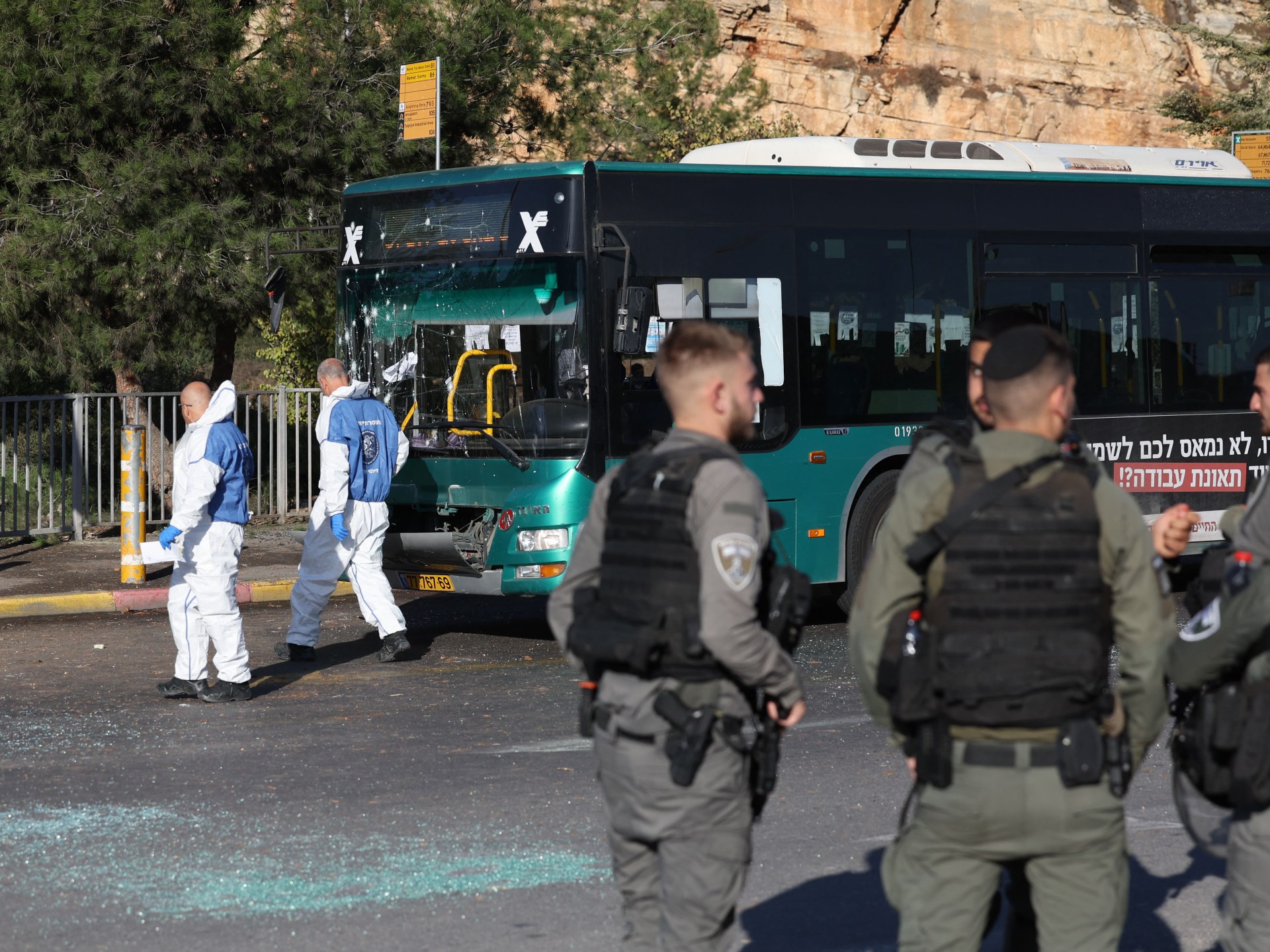Occupied Jerusalem
-
Location: A public bus station west of Jerusalem.
When: 7:20 a.m. Wednesday, November 23, 2022.
Event: An explosive device placed on an electric bike exploded inside the station, killing an Israeli and wounding 18 others, followed by another explosion in the settlement neighborhood of Ramot in Jerusalem.
This is how the Palestinians woke up to news that had been absent from the occupied capital since 2016, when a young man, Abd al-Hamid Abu Srour, from the city of Bethlehem, was martyred after planting an explosive device that exploded inside an Israeli bus, causing 21 injuries, some of them seriously.
The news also brought back to the minds of the Palestinians the bombing of an Israeli bus at a bus station west of Jerusalem, for which a young Jerusalemite, Isaac Arafa, was convicted in March 2011, and years later it resulted in the death of a woman who was injured in the operation that resulted in the wounding of 67 Israelis.
The privacy of the place
The researcher specialized in Israeli affairs, Khaldoun Al-Barghouti, told Al-Jazeera Net that the place and time in which the first operation took place this morning had an exceptional privacy.
The fact that the explosion occurred at a bus station, which is the place where Israelis crowd every morning on their way to their places of work, schools and universities.
Al-Barghouti indicated that the Israeli security services were expecting to reach this stage of the operations in light of the escalating gradation of the Palestinian operations from stabbing with knives to running over and shooting, up to what happened days before a car explosion near a checkpoint without causing any injuries, and to the two operations today in Jerusalem.
Accordingly, the security services have recently tended to the need to mitigate and avoid the causes of escalation, but the political echelons in Israel provided - according to Barghouti - the electoral interest, allowing settlers to persist in attacking Palestinians in Jerusalem and the West Bank in partnership with the occupation army.
In conjunction with this persistence, the researcher confirmed the growing state of great solidarity with the resistance groups that appeared in Jenin first and Nablus later, and therefore it was expected that the development in the type of operations carried out by the Palestinians, especially with accusations of Hamas working to escalate the situation in the West Bank.
A number of Israeli journalists specialized in Palestinian and security affairs confirmed that young settlers in Jerusalem are not accustomed to the kind of operations that adults remember when they recall the bombings in the second intifada.
black days
The head of the Jerusalemite Commission for Anti-Judaization, Nasser Al-Hadmi, said that the two bombings that took place in Jerusalem this morning brought back to the minds of the Israelis the dark days they lived during the years of the second intifada, which witnessed painful bombings in the depths of Israeli cities, especially in the city that they claim is their capital.
He added that these two explosions occurred after a state of brokenness felt by the Palestinians due to the recent persistence of the occupation and settlers in attacking their lives, sanctities, cities and villages.
He continued, "At the first moment, after hearing the news of the explosion, I remembered the displacement of Sheikh Jarrah and Itamar bin Gvir's bragging about his weapon in this neighborhood, in the village of Nabi Samuel, in Bab al-Amud and the Al-Aqsa Mosque. I also remembered the march of the Israeli flags and the daily violations in the city.
According to Al-Hedmi, this operation came to confirm to the occupation and its supporters once again that their personal safety in this country is constantly fading away.
Although the details of the two explosions that occurred this morning are still gradually emerging, they opened an old page that Israel thought it had managed to turn over.

